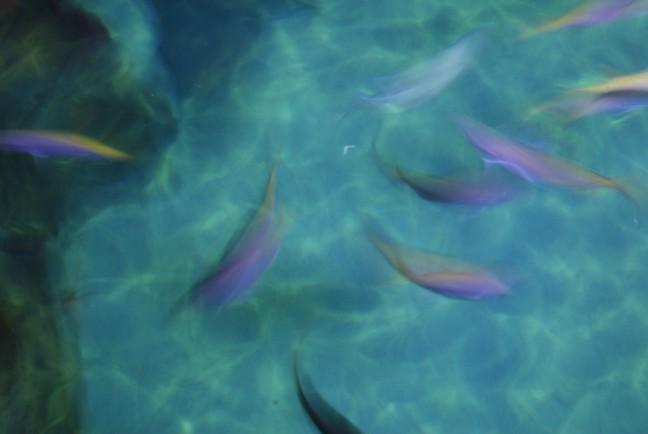Are you out there, E.T.?
To understand whether life exists on Mars and other planets, University of Wisconsin scientists are contextualizing these planets by first researching the origins and evolution of life on Earth.
A team of about 80 researchers from UW and other institutions comprise the Wisconsin Astrobiology Research Consortium, which studies ancient rocks in hopes of finding the secrets behind how life on Earth began.
Lead investigator Clark Johnson said his team analyzes rocks in South America and Australia that are more than three billion years old. The theme of the study is biosignatures, which are chemical and mineral clues of early life on Earth, Johnson added.
“It’s basically the field of astrobiology, which is looking at the origin of life in the universe and where else we might find it in the universe,” he said. “We spend a lot of time looking at our own record of life because as far as we know so far, this is the only place we know without a doubt life exists.”
Johnson noted WARC’s findings in these rocks reveal methods of metabolism through chemical energy before oxygen and the process of photosynthesis existed on the planet. He said he thinks Mars would likely have similar anaerobic metabolic organisms.
While it is easy to identify dinosaur bones or fossils from living organisms, Johnson added this process is tougher with rocks because microbial-based forms of organic life are quite difficult to tease out of them.
Studies of prehistoric Earth are essential to informing research of extraterrestrial lands, when the United States eventually voyages to Mars, he said.
“Hopefully, we would have a really good understanding by that time of how life evolved on Earth first, because that’s our comparative reference frame,” Johnson said. “If we know nothing about early Earth, it would be very hard to guess what we would expect to find on early Mars.”
WARC has just begun its renewed five-year, $9 million term of a grant from the NASA Institute of Astrobiology. The Wisconsin consortium is one of 14 similar astrobiology groups throughout the U.S. receiving grants from NASA for related work.
The Consortium was selected for another five years of funding because it is doing work that is essential to NASA’s objectives of understanding the conditions of life on early Earth and how they have evolved, NASA Institute of Astrobiology Director Edward Goolish said.
“University of Wisconsin put together a first-rate proposal that addressed the priorities NASA was looking for in a way that was a cut above many of the other proposals we got,” Goolish said. “One of the things we look for is the very best science. Wisconsin is doing state of the art work that is deeply important.”
UW brings in millions of dollars from NASA each year for other research, according to Chris Barncard, a university spokesperson. He said the Space Science and Engineering Center at UW and Cooperative Institute for Meteorological Satellite Studies work to use NASA satellites to study climate, land use and predict the weather around the world globe.
However, Barncard emphasized WARC’s work to discover the beginnings of life on Earth are one of the many amazing research projects ongoing at UW.
“It’s pretty wild stuff, isn’t it”? he said. “It sounds weird, but it’s not too uncommon to run into people on campus who are asking really large questions like this, who are way out at the edge of their particular discipline. The Astrobiology Research Consortium is certainly one of those.”














